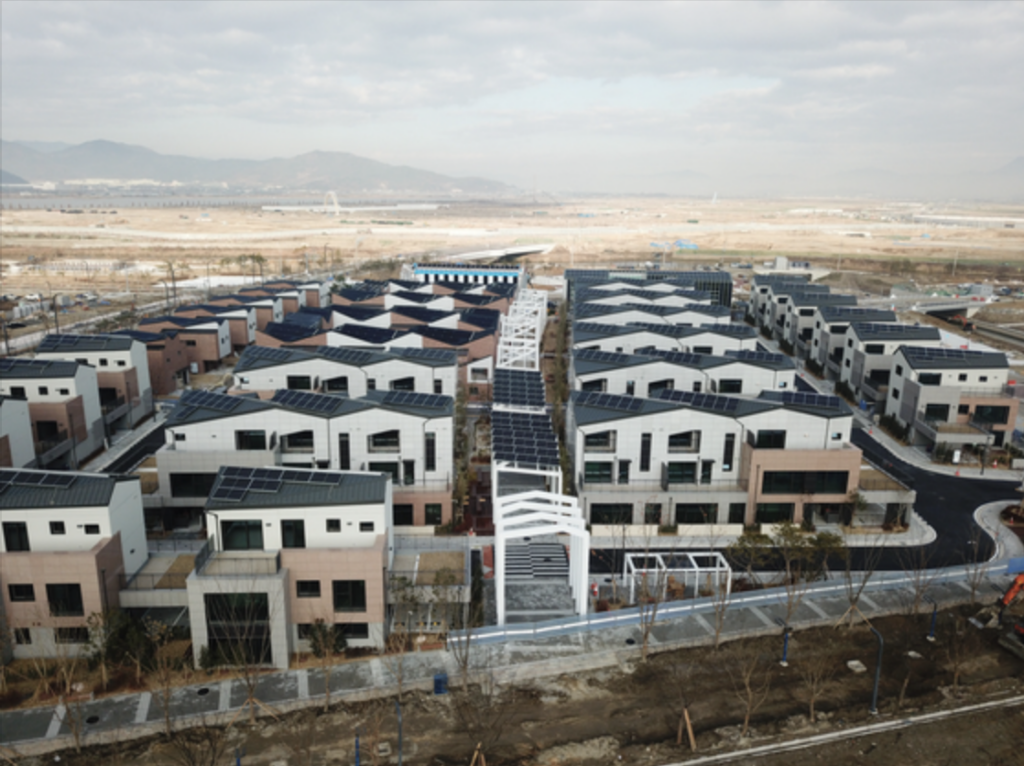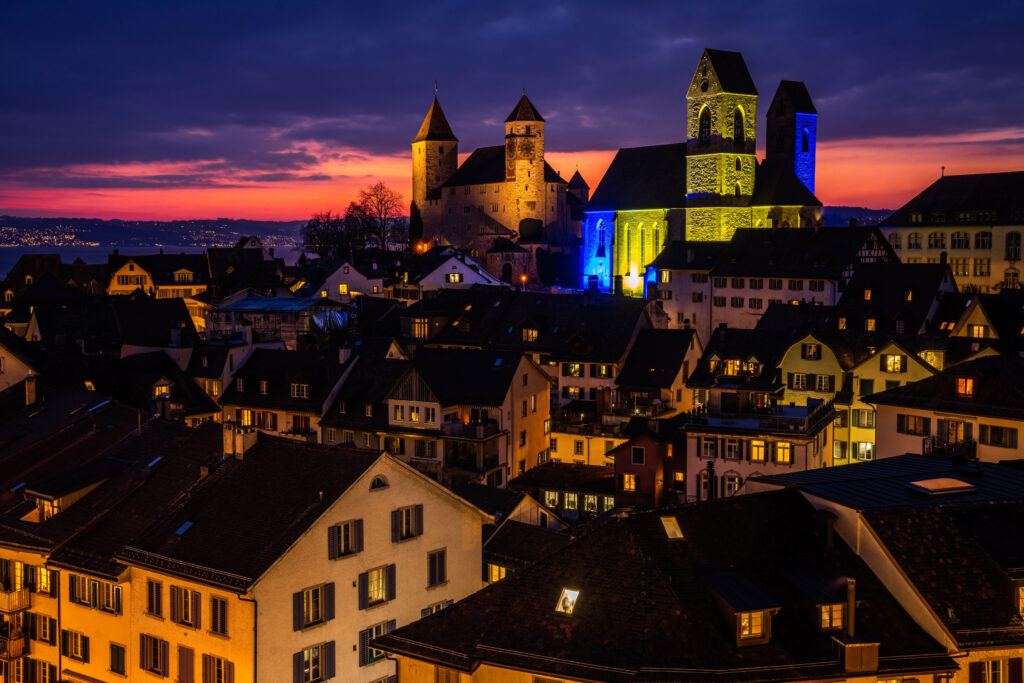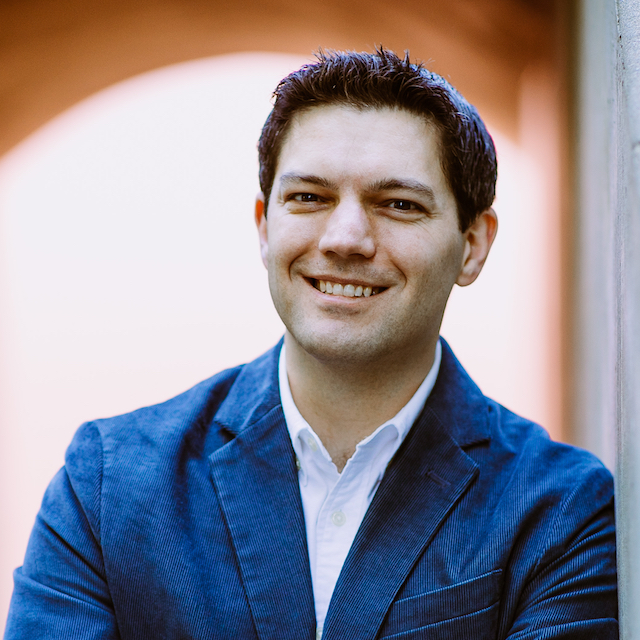Volcanoes are erupting in The Philippines, but on-fire Australia received some welcome rain. The Iran war cries have been called off and The Donald’s military powers are about to be hamstrung by the Senate. Meanwhile, his impeachment trial is starting, and we’re all on Twitter for a front-row seat.
What Could Go Right? A positive perspective on a complicated world
The second season of our podcast is out! Plus, smart homes and cities, and Ukraine's digital resilience
This is our weekly newsletter, What Could Go Right? Sign up here to receive it in your inbox every Thursday at 6am ET. You can read past issues here.
A positive perspective on a complicated world: our podcast returns for a second season
We see The Progress Network (TPN) as ballast in a news landscape and cultural mood that is dominated by the negative. In a particularly negative zeitgeist like the one we’re in now, it’s crucial to provide two things. One, more attention to all the things that are going right. Hence this newsletter! And two, a constructive approach to the big issues of our time.
The second is what we do on our podcast, also called What Could Go Right?, where we talk problems with the brightest problem-solvers we know—the members of our network. Our second season launched yesterday, and we would like to invite all of our newsletter readers to join us for a series of conversations meant to foster a positive perspective on a complicated world. On the agenda this season is everything from how to manage a thriving “happiness 401k,” to a special on Ukraine, to race and politics two years on from George Floyd, and even to space. We’re delighted to start the season off with Jason Crawford, founder of The Roots of Progress, who is building, with his community, a philosophy of progress for the 21st century. (We ask him where the sensibility of progress went and how we can bring it back.) Listen to the episode here.
If what we’re doing at TPN brings value to your life—or at least your Thursdays!—please help us spread the good feelings around. Rate the podcast, write a review, give it or the newsletter a shoutout on social, or mention us to your worst doomsaying friends. It all adds up. Thank you for being part of this effort to change the waters we’re swimming in.
Smart homes and sponge cities
A home that wakes you up and reminds you to stretch in the morning: it’s a reality in South Korea, where the government is conducting a “smart city” experiment that we’re bummed not to have been invited to. The idea is to collect data from this small pilot of 54 homes, called the Eco Delta Smart Village, in order to build smart, sustainable cities that optimize for good living.
Environmentally-speaking, the setup is impressive. Plants are watered with recycled sewage water. Drinking water comes from the river. Hydrothermal and solar energy is abundant; solar panels are everywhere. The “smart” part of things does sound a touch Black Mirror-y—there’s literally a speaking mirror, not to mention a refrigerator that knows when food is about to expire and street-cleaning robots. But the residents seem to be into it. “It feels like I’ve been living in a hotel and having a two-month vacation with my family,” one told The New York Times. (It helps that the rent is free.)

In the United States, Axios sees the future of homes as giant batteries that can generate and store their own power. The garage will have a charging station for your electric car, of course, and you could even use that car as a backup generator in a pinch. It will take some time for technology to make these smart homes possible, but a few forward-looking companies and products—like Tesla’s Powerwall, which stores extra solar energy as backup—are springing up to get us there.
How do you protect a city against water-related weather extremes like floods and drought? Build sponge cities—a term for infrastructure that can catch excessive amounts of water and release them when needed. They’re not made by affixing sponges to all buildings but by reintroducing nature’s own solutions into the city plan, such as canals that drain rainfall into storage ponds. Click above for The New York Times‘ feature on a handful of sponge cities and their strategies, including Philadelphia.
A resilient Ukraine, in-country and out
It may seem like a small thing when there is a war on, but every small thing counts. The Tony Blair Institute for Global Change has a very interesting piece on how Ukraine’s robust digital infrastructure has been a source of wartime support. In the last few years, the government took pains to digitize. There is a popular government app, for instance, that handles multiple needs in one, everything from Covid-19 vaccination certification to changes of address. Now the app has allowed the government to easily send digital cash to citizens in war-affected regions, collect donations for the armed forces, and a lot more. They have even come out with a wartime digital ID, recognized in Moldova and Poland, for those who may have lost identification cards or passports in the frantic exodus.
The Ukrainian refugee crisis is being met by unprecedented support, with several European countries upending old refugee systems and rules to accommodate the Ukrainians fleeing war. In Switzerland, for instance, the government has created a special permit that expedites the process for work approval to just one month. Meanwhile, refugee worker Amy Aves Challenger writes for us, “The life of a teen Afghan girl I know who arrived in a shipping container from Greece three years ago . . . has not changed at all. She still has an F Permit, which means she has been ordered to leave but is permitted to stay because it is unlawful to deport her.”
Astonished but inspired by the overnight change in attitudes toward refugees, Challenger hopes to set that level of generosity and empathy as a benchmark for reactions to all refugees. The power of open arms is strong. Just ask the Ukrainian schoolchildren being welcomed by their peers. Cue the “awww”s: “All the girls want to be friends with me. Everyone wants to help me,” one eight-year-old starting school in Ireland told the Thomson Reuters Foundation.
The peace talks between Russia and Ukraine are progressing, but as Ukrainian President Volodymyr Zelenskyy noted, there is a vast difference between what Russia is saying and what Russia is doing.
Before we go
Climate change: it’s not a one-way ticket to the end of the world, despite the popularization of that narrative. “The scope of possible consequences of climate change on human societies can be understood as a race between two robust and dynamic trends,” TPN Member Ted Nordhaus wrote this week. “On the one hand, rising atmospheric concentrations of greenhouse gases will bring increasing global temperatures and a variety of attendant impacts at local and regional scales. On the other, greater societal wealth, better technology, and improved infrastructure have already increased societal resilience against climate extremes and variability.”
How we mitigate the former and increase the latter is a complicated discussion, and one best had without the “apocalyptic and polarizing rhetoric” of climate catastrophism, says Nordhaus. Save his long read for the weekend or an extended morning coffee. (Increasing the second trend, by the way, is exactly why the United Nations’ call to build early warning systems for natural disasters worldwide is an urgent one. Such systems have saved many lives in countries that already have them.)
Here are a few useful things we found on the Internet this week. For those of us living in countries with still-strict mask rules, facial identification on iPhones finally works even if you’re wearing a mask! Here’s how to set it up.
How happy you are really is (somewhat) under your control. Learn how to give your happiness levels a boost with two online courses, one from Yale University’s Laurie Santos and one from TPN Member Arthur Brooks. They are both free. We started Santos’ this week, and came in with a very low starting happiness score. Yikes! Share yours with us at hello@theprogressnetwork.org, and we’ll see what progress we can make together.
Below in the links section, humpback whales are making a comeback, progress on a birth control pill for men, and new unemployment claims in the US are low, low, low.
Can we treat all refugees the way we are treating Ukrainian ones?

The European response to Ukrainian refugees has been astounding. Let’s use it to push for better circumstances for all refugees going forward. | Read more
S2 Ep. 1: The Progress Movement

Is progress still possible? We believe so, and we’re not alone. Jason Crawford, founder of The Roots of Progress, sits down with us to talk about the possibilities of the future and makes a case for optimism in the face of pessimistic predictions about tomorrow. | Listen to the episode
Progress, Please
(Found good news? Tweet at us @progressntwrk or email.)
Other good stuff in the news
United States:
- New unemployment claims drop to lowest level since 1969 | Axios
- Washington state mandates all new car sales to be electric by 2030 | Utility Dive
- Biden administration to tackle racial disparities in home valuations | Bloomberg
- US to welcome 100,000 Ukrainian refugees | CNN
- House poised to pass bill legalizing marijuana | The Hill
- Skilled-trades programs are booming | NPR
- Credit companies will remove stains from repaid medical debts | NY Times
International:
- The EU moves to break apart Big Tech’s monopoly on the industry | NY Times
- We have the technology necessary to rapidly ditch fossil fuels | The New Yorker
- Gene therapy gel corrects rare genetic skin condition | New Scientist
- Sustainable fishing surges in Abu Dhabi | The National
- Vaccines lower the risk of getting long Covid | NPR
- Major fast food companies pledge to phase out “forever chemicals” | Axios
- Humpback whales make a comeback | Nautilus
- Mitigating pet food’s carbon footprint with lab-grown meat | Positive News
- Russians are racing to download Wikipedia before it gets banned| Slate
- Drugs seem to regenerate mouse lungs damaged from cigarette smoke | New Scientist
- Progress on a male birth control pill| Fortune
- Indonesia launches a conservation partnership program | Mongabay
- All over the globe, everyday people have entered the market | Rest of World
TPN Member originals
- How to defeat Putin and save the planet | Thomas L. Friedman
- Why we should develop a healthier relationship with Joe Manchin | Matthew Yglesias
- Will Smith’s wrongs don’t make Chris Rock right | Peniel E. Joseph
- Why you probably don’t need to worry about 1970s-style stagflation | Zachary Karabell
- An explanation of NFTs’ value that actually makes sense | Scott Galloway
- Russia has decided it is more Asian than European | Parag Khanna
- Why Russia is losing: Gen. David Petraeus on the war in Ukraine | Jonathan Tepperman
- Anne Applebaum on how to fight back against dictators like Putin | Yascha Mounk
- Give service workers stable schedules | Zeynep Ton
- Flywheels of progress| Jason Crawford
- At KBJ hearings, competing visions of how to love the country were on display | Theodore R. Johnson
- Finland’s NATO membership hopes | Ian Bremmer
- Non-member add: What if everyone voted? The case for 100% democracy | E.J. Dionne Jr. & Miles Rapoport
Looking for our long list of progress? It will be back next week! Apologies, we are a very small team and are still operating down one person.
Upcoming Events
- When the Stars Begin to Fall: Overcoming Racism and Renewing the Promise of America | Theodore R. Johnson | Today
- Wharton Future of Work Conference | Adam Grant | April 7
- Breakthrough Dialogue 2022: Progress Problems | Ted Nordhaus | June 22–24
Until Next Time
Likely the only thing we have to say about the #slapheardroundtheworld



